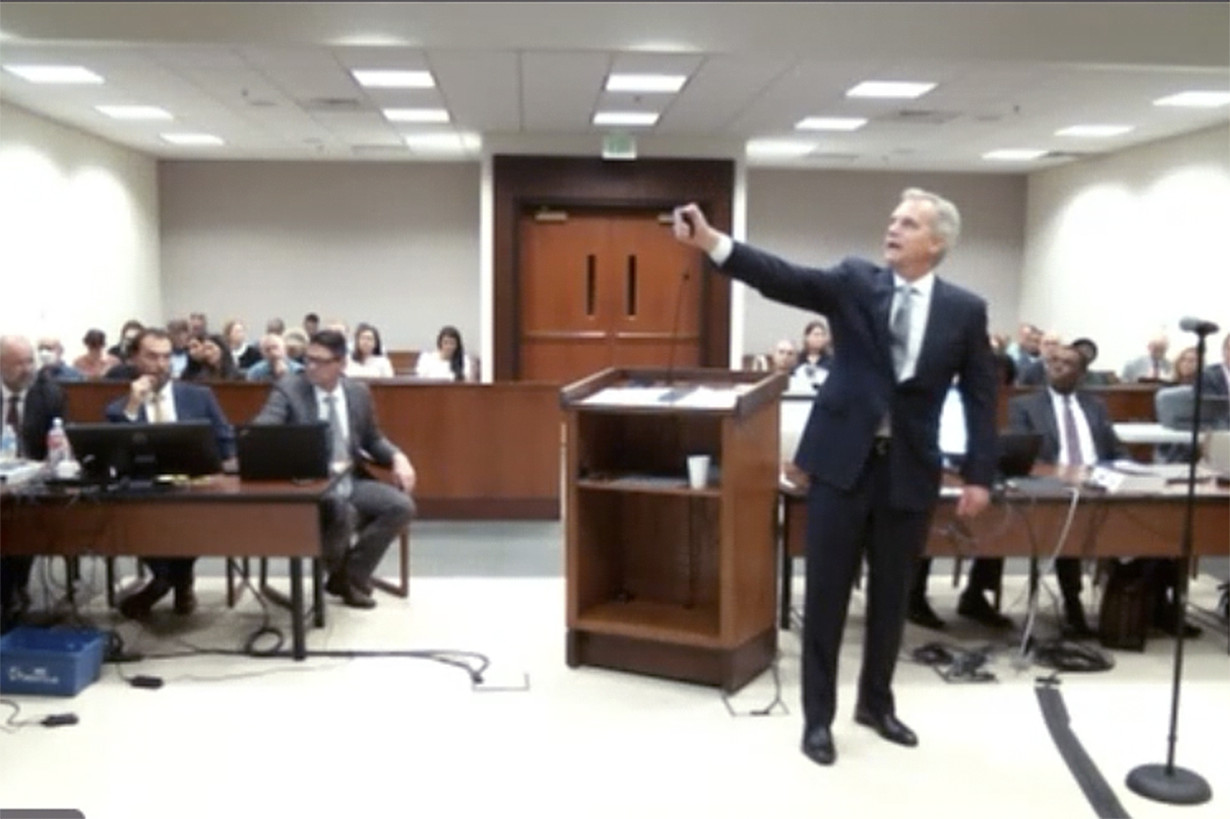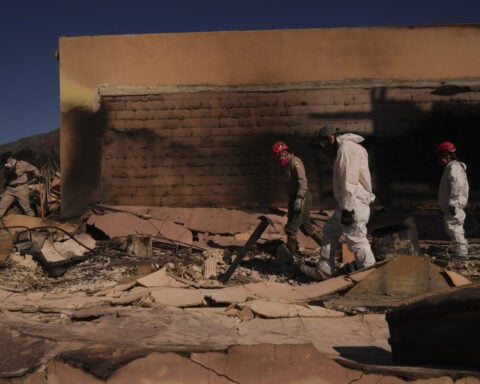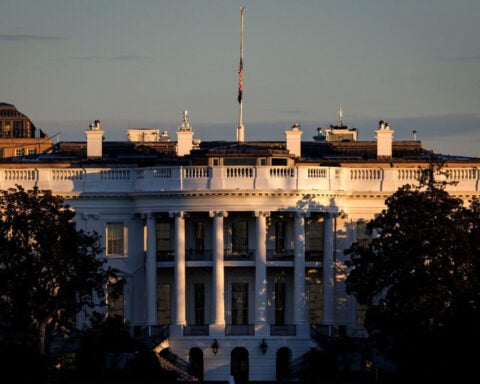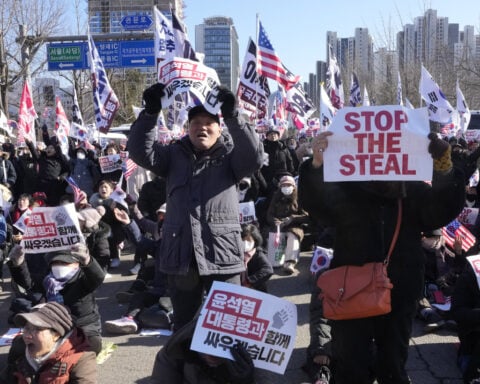DENVER (AP) — The pathologist who performed Elijah McClain's autopsy testified Tuesday that he was unsure if a police neck hold contributed to the Black man's 2019 death as attorneys for two Denver-area officers on trial for homicide sought to cast doubt about the prosecution's case.
Pathologist Stephen Cina initially ruled in 2019 that McClain’s cause of death was undetermined in a case that along with the killings of George Floyd and others galvanized critics of excessive police force against Black people.
But in a revised autopsy report from 2021, Cina said the cause was an overdose of a sedative, ketamine, that was injected by paramedics after the 23-year-old massage therapist was stopped and put in a neck hold while walking home in the Denver suburb of Aurora. He also noted that ketamine was given after McClain had been forcibly restrained by police.
Cina said Tuesday that he didn’t have enough evidence to determine if McClain's death was an accident or if the neck restraint used by officers contributed to it.
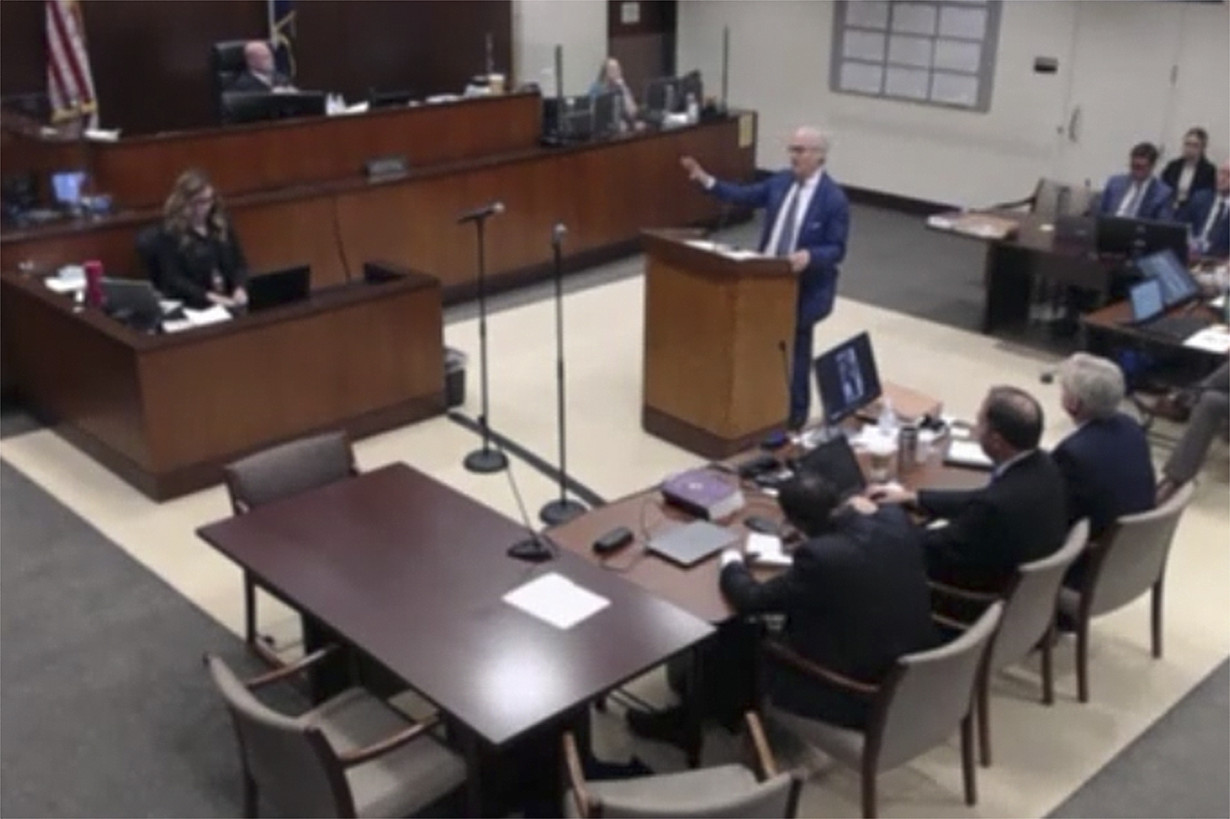
The trial is expected to continue into next week and defense attorneys for the officers have not yet presented their case. Their questioning of prosecution witnesses already has revealed their strategy: Shift blame to the paramedics who injected the ketamine and even to McClain himself, by saying his struggles against the officers left him weakened and more susceptible to an overdose.
Here’s what you need to know about McClain’s death and the trial underway in state court:
The neck hold maneuver, called a carotid control hold, restricts the flow of blood to a person’s brain, rendering them temporarily unconscious. Neck restraints have been banned in many states following the nationwide Black Lives Matter protests.
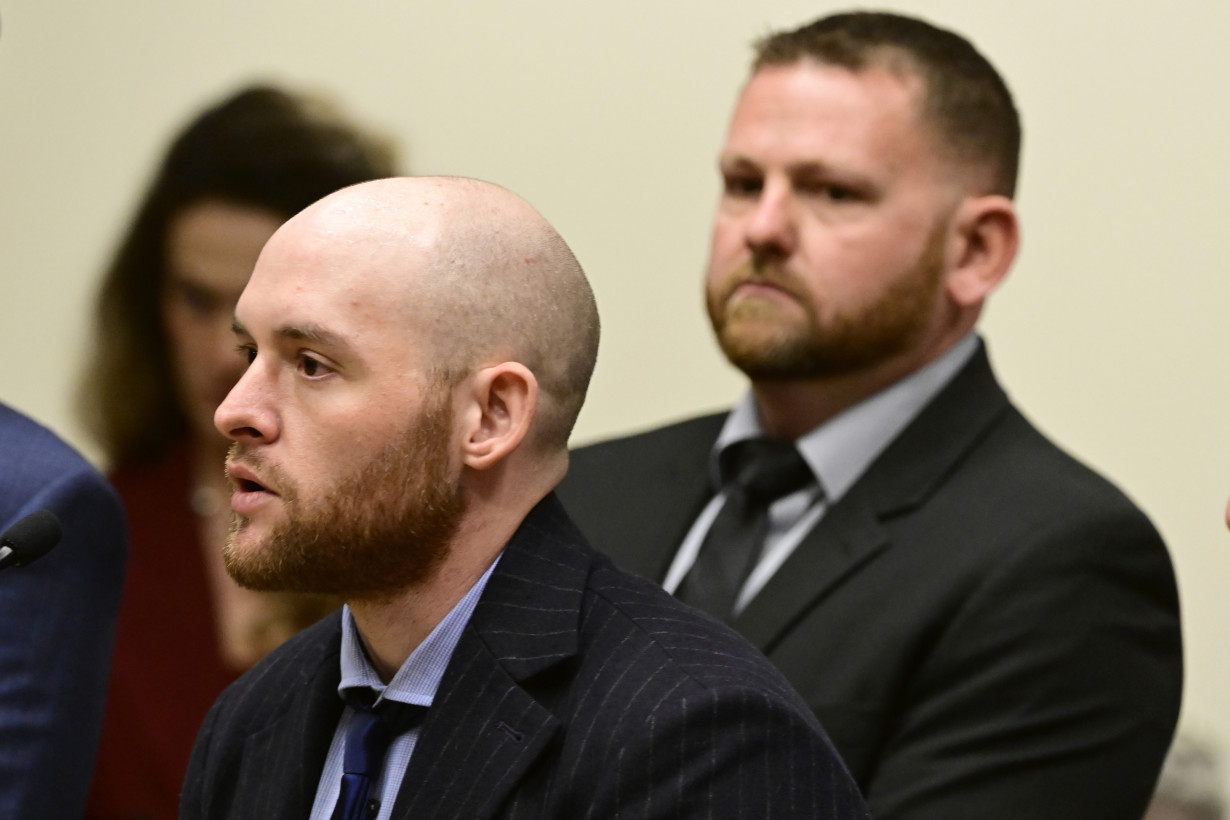
McClain had been kept on the ground for 15 minutes when paramedics gave him 500 milligrams of ketamine. He weighed 140 pounds (64 kilograms) but received a higher dose of ketamine than recommended for someone of his size and overdosed, Cina said.However, Cina said that the levels of the drug found in his blood were within the range that would not be harmful to most people.
If the neck hold caused McClain to vomit and then he inhaled his vomit into his lungs while being restrained by police, the hold could have contributed to the problems caused by the ketamine, Cina said. While Cina said that McClain had inhaled his vomit, he said that could also have happened after being given the ketamine and put in the ambulance while laying on his back.
“Some forensic pathologists would consider this whole case an accident. I believe some forensic pathologists would consider the whole case a homicide,” Cina said. “I’m in between. The restraint may have done something, but that’s not enough for me to make it a homicide."
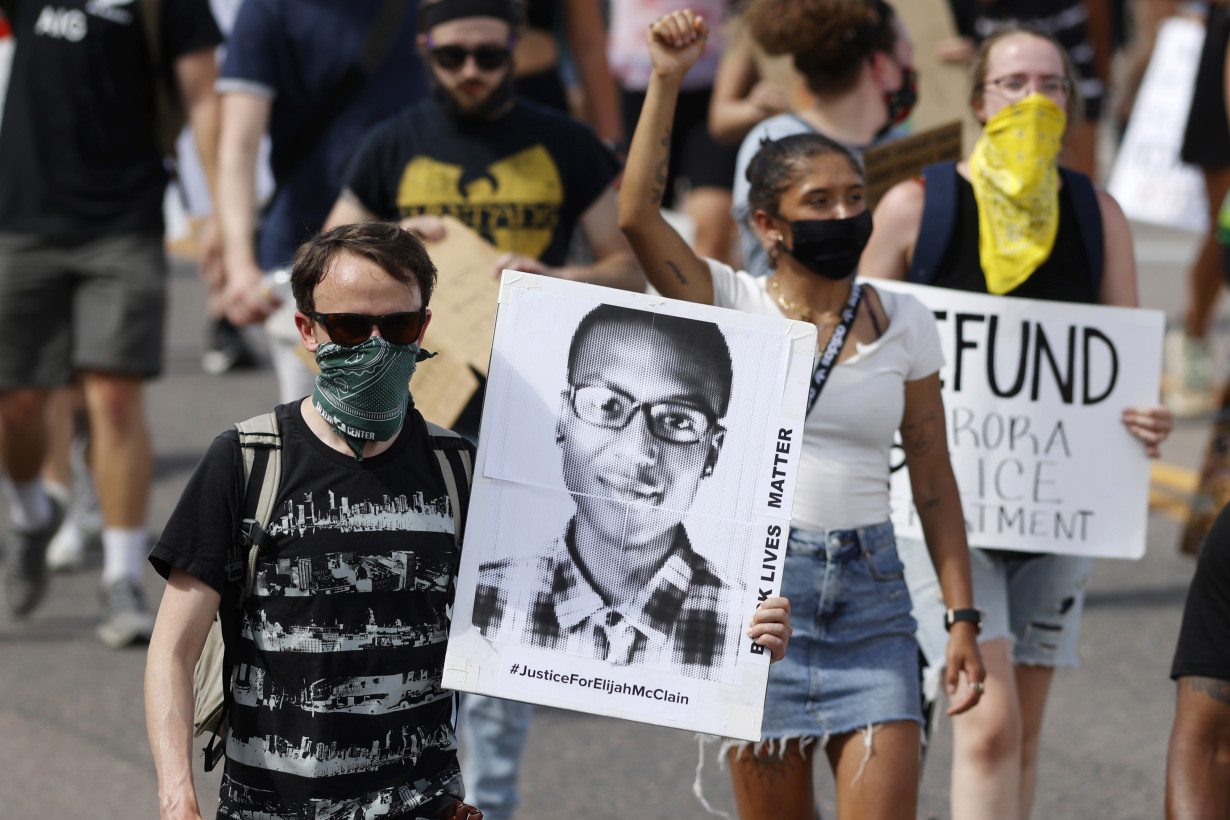
Earlier, pulmonologist David Beuther testified for the prosecution that McClain threw up repeatedly and inhaled vomit into his lungs that made it hard to breathe. Even before the ketamine was injected, McClain’s health had deteriorated to the extent that he belonged in a hospital intensive care unit, he said.
A 911 caller reported McClain, who was wearing earbuds and listening to music, seemed “sketchy” and was waving his arms as he walked home from a convenience store in the city of Aurora, a suburb of Denver, on the night of Aug. 24, 2019. The 23-year-old massage therapist was often cold and wore a runner’s mask and jacket despite the warm weather, according to the indictment.
Jurors were shown surveillance video from the store of McClain wearing the mask and waiting to pay for three cans of ice tea. No one else in the store appeared concerned that he was in a mask, although the clerk’s back was to the camera.
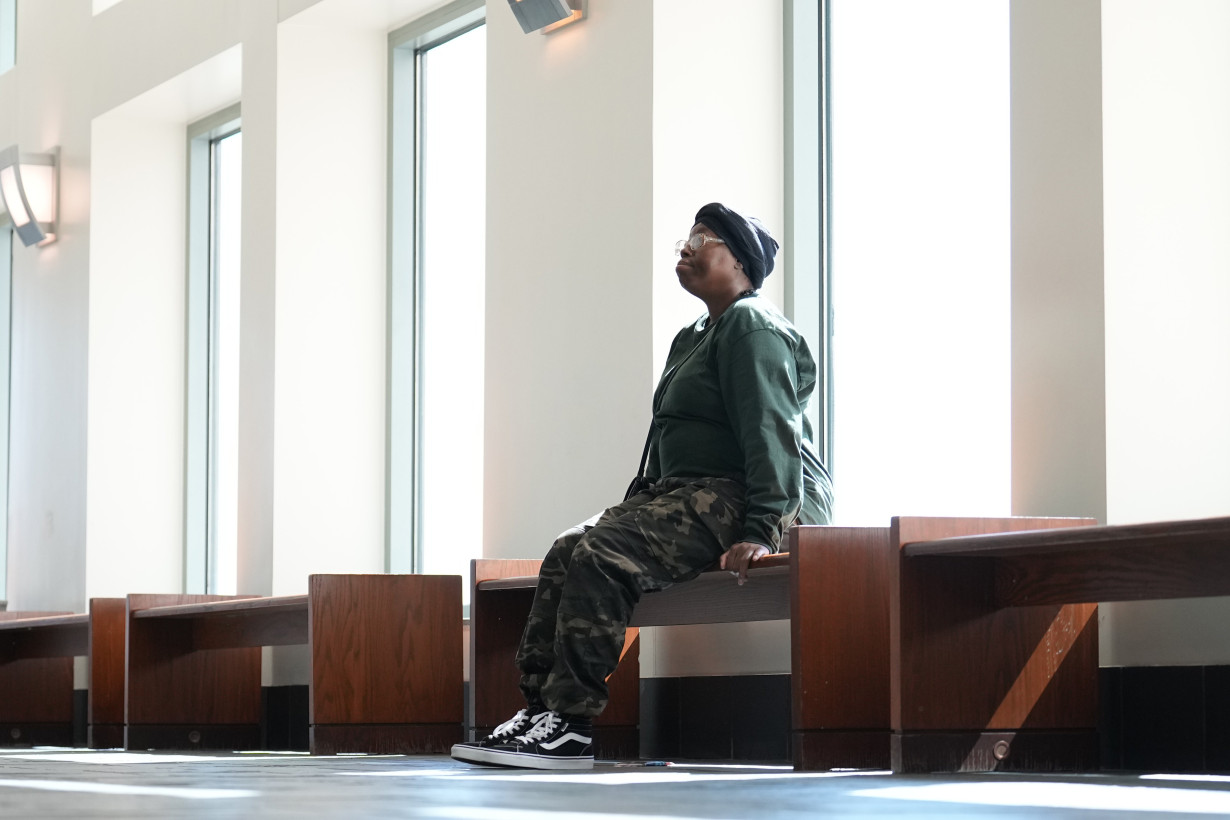
Three officers approached McClain after he left the store. Within 10 seconds Officer Nathan Woodyard put his hands on McClain, turning him around. As McClain tried to escape his grip, Woodyard said, “Relax, or I’m going to have to change this situation.”
The encounter quickly escalated, with officers taking McClain to the ground and putting him in a neck hold, pressing against his carotid artery. Paramedics arrived and injected McClain with the sedative ketamine. He went into cardiac arrest on the way to the hospital and was taken off life support three days later.
A Colorado prosecutor initially decided against prosecuting McClain’s death largely because the initial autopsy did not determine exactly how he died.
Following the protests over Floyd's death in 2020, Democratic Gov. Jared Polis directed Colorado’s attorney general to open a new investigation. Two paramedics and three officers were indicted by a state grand jury in 2021.
Cina testified that he received deaths threats because of his original autopsy report. He also said people upset about it showed up outside his home and that a “self-proclaimed witch” from New England sent him a lock of her hair and put a curse on him.
Cina later revised his report based on additional medical information and more extensive body worn camera footage than he initially received, he said.
The officers now on trial — Randy Roedema and Jason Rosenblatt — are charged with manslaughter, criminally negligent reckless homicide and assault, all felonies. They pleaded not guilty.
Roedema, a former Marine who is currently suspended without pay, had been with the department for five years before McClain’s death. Rosenblatt worked for the agency for two years and was fired in 2020 for making light of other officers’ reenactment of the neck hold.
The two officers have not talked publicly about McClain’s death and it’s unknown if they’ll take the stand to testify. Their lawyers told jurors that the officers' actions followed police policies and weren’t responsible for McClain’s death.
Body cameras worn by the officers captured the confrontation and the footage is being used by both sides to bolster their arguments.
Woodyard's trial begins later this month month and paramedics Cooper and Cichuniec are scheduled to be tried in November. Judge Mark Warner ruled in January that there would be separate trials to ensure fair proceedings.
___
Brown reported from Billings, Montana.

 Germany sees meat exports to EU continuing after foot-and-mouth case
Germany sees meat exports to EU continuing after foot-and-mouth case
 Parliament speaker to lead Taiwan delegation to Trump's inauguration
Parliament speaker to lead Taiwan delegation to Trump's inauguration
 German economy contracted 0.2% in 2024
German economy contracted 0.2% in 2024
 Middle East latest: Palestinian prime minister says Palestinian Authority should run Gaza in future
Middle East latest: Palestinian prime minister says Palestinian Authority should run Gaza in future
 Nokia signs multi-year patent license agreement with Samsung
Nokia signs multi-year patent license agreement with Samsung
 Irish parties secure 'comfortable majority' for new government
Irish parties secure 'comfortable majority' for new government
 Bayern Munich signs US youngster Bajung Darboe from LAFC
Bayern Munich signs US youngster Bajung Darboe from LAFC
 Novak Djokovic breaks a tie with Roger Federer for the most Grand Slam matches in tennis history
Novak Djokovic breaks a tie with Roger Federer for the most Grand Slam matches in tennis history
 China's RedNote: what you need to know about the app TikTok users are flocking to
China's RedNote: what you need to know about the app TikTok users are flocking to
